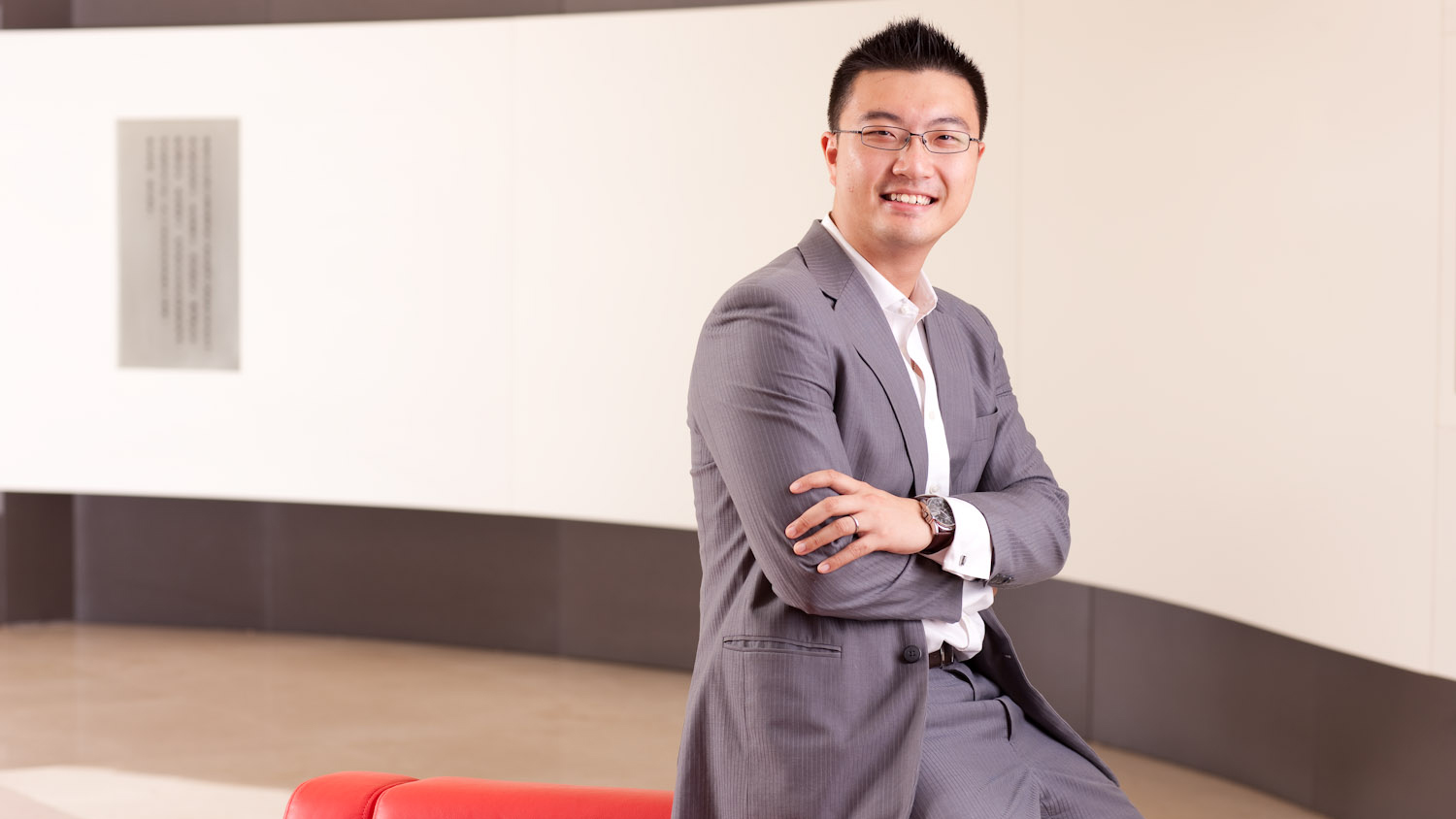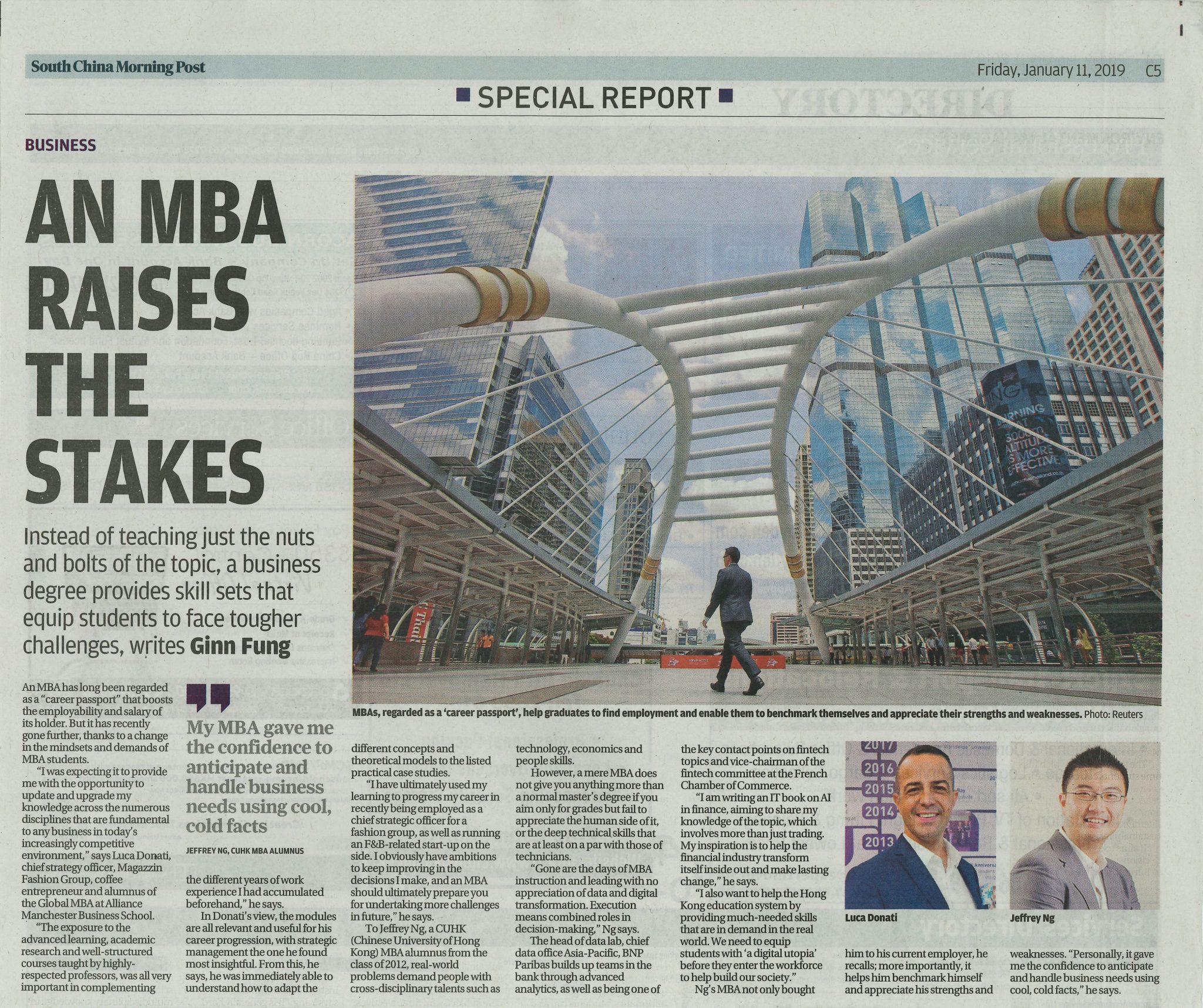CUHK MBA Helps Graduates Benchmark Themselves and Appreciate their Strengths and Weaknesses

An MBA has long been regarded as a “career passport” that boosts the employability and salary of its holder. But it has recently gone further, thanks to a change in the mindsets and demands of MBA students.
In an interview with South China Morning Post, Jeffrey Ng, Head Of Data Lab, Chief Data Office Asia-Pacific, BNP Paribas, and CUHK MBA alumnus from the class of 2012, said, “Real-world problems demand people with cross-disciplinary talents such as technology, economics and people skills.”
CUHK MBA not only bought him to his current employer, Ng recalled; more importantly, it helped him benchmark himself and appreciate his strengths and weaknesses. “Personally, it gave me the confidence to anticipate and handle business needs using cool, cold facts,” he added.
However, a mere MBA does not give you anything more than a normal master’s degree if you aim only for grades but fail to appreciate the human side of it, or the deep technical skills that are at least on a par with those of technicians.
“Gone are the days of MBA instruction and leading with no appreciation of data and digital transformation. Execution means combined roles in decision-making,” Ng said.
Ng builds up teams in BNP Paribas through advanced analytics, as well as being one of the key contact points on FinTech topics and vice-chairman of the FinTech committee at the French Chamber of Commerce.
“I am writing an IT book on AI in finance, aiming to share my knowledge of the topic, which involves more than just trading. My inspiration is to help the financial industry transform itself inside out and make lasting change,” he stated.
“I also want to help the Hong Kong education system by providing much-needed skills that are in demand in the real world. We need to equip students with ‘a digital utopia’ before they enter the workforce to help build our society.”
Please click the image below to read the full story published in South China Morning Post’s print edition on 11 January 2019.
Source: South China Morning Post
Date published: 11 January 2019


